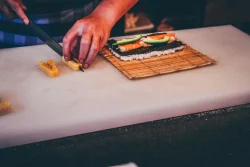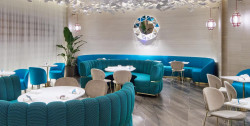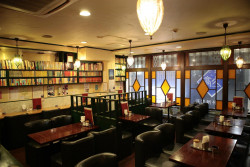
Originally published on metropolis.co.jp on August 2011

How long have you been in Japan? What brought you to Tokyo?
I arrived in Tokyo in February 2007 to participate in a radio project with InterFM before they were bought out the first time. I realized there were many opportunities for me to get involved with projects related to my careers in information technology and radio broadcasting back in America.
How did Rescue Japan get started?
In 2005 I was working for 93.1FM in Indianapolis, Indiana when Hurricane Katrina hit New Orleans. We quickly rallied to organize supplies with our listeners to send to the devastated area. With that experience behind me, and with what I saw on March 11, I knew I had to do something. Within a few days Rescue Japan was established, the website was up, and the call for people to help was in the pipeline. The response was tremendous.
What was your first big hurdle? What was your first cargo delivery and how successful was it?
On March 14 we sent our first delivery into the disaster area along the main roads that were accessible through another agency that was also aiding victims. We also used courier services to ship boxes to evacuation centers that were taking in victims. The only hurdle I can think of was financial support, but this was quickly overcome within the first few weeks. Many individual donations made it possible for us get trucks on the road and cover fuel costs.
What items have you delivered to the Tohuku region? How many?
With the help of many donors, to date we have delivered more than 40 tons of supplies into the various cities in Tohoku. These included large pallets of water, dry foods, hygiene products and blankets. We also supplied aid to victims who were staying at a youth hostel in Iidabashi here in Tokyo where we delivered fresh vegetables every week. This was all done on a very limited budget. There is still a huge amount of donated items needed, and it seems there will be for a long time coming.
What items are most urgently needed right now?
This would depend on which city is requesting aid. The field reports on our website indicate the individual cities and towns requesting items. In Fukushima, items across the board are needed because of the contamination scares. In Miyagi, it varies from rice to other dry foods. Bikes and summer blankets seem to be an item in high demand. In Iwate, it is everything from furniture to daily essentials like food, water, hygiene products and underwear.
What items do you see being needed six months down the road? One year?
Today marks four months since the tsunami hit, and still there are people in isolated areas that rely 100 percent on donated food because the stores are too far away to travel to, and very little help is getting to them. It is very hard to say what the needs will be because the requests for aid change almost on a daily basis. For now, we continue to support small aid groups operating in disaster areas that make requests for support. Most of them are supporting groups organized by victims themselves to help their neighbors.
What companies here have supported Rescue Japan in your relief efforts? Many corporations have donated items and helped in many ways with our program. Pacifica Consultants were the first to offer tremendous support helping to organize relief shipments. Quraz (the storage company) offered space to set up our prep facility and helped us cover much of the transport costs to ship aid to Tohoku.
Many in Tokyo know Wayne Miles by his broadcast and DJ name, “Dwayne Wayne.” If you would like to get involved or donate items, visit the Rescue Japan website.







